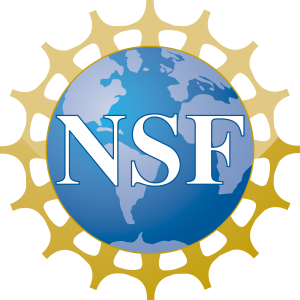 The following is a letter to the community from James Kurose, Assistant Director, and Erwin Gianchandani, Deputy Assistant Director, of the National Science Foundation (NSF) Directorate of Computer & Information Science & Engineering (CISE).
The following is a letter to the community from James Kurose, Assistant Director, and Erwin Gianchandani, Deputy Assistant Director, of the National Science Foundation (NSF) Directorate of Computer & Information Science & Engineering (CISE).
Dear CISE Community,
As the 2018-2019 academic year begins, we wanted to take a moment to highlight an important expansion of our broadening participation in computing (BPC) efforts.
As a preface, let’s begin, though, by reflecting on the great strides that our community has made in improving access to computer science education at the K-12 level. Just two years ago, The College Board launched a new Advanced Placement® (AP®) exam, Computer Science Principles (CSP). Over 50,000 students took the exam in the first year – marking the single largest launch of an AP exam in the program’s history – and this number grew to over 76,000 this past May. These astonishing numbers included doubling of female and underrepresented students taking AP computer science exams in 2017 as compared to the prior year. And this trend continued into 2018: the number of Black/African American, Hispanic/Latino, female, and rural students grow by 44%, 41%, 39%, and 73%, respectively. You can read more about the 2018 AP exam here. At the same time, the number of students enrolled in computing courses at undergraduate institutions across the U.S. is also surging.
We in CISE want to build on this momentum – as well as our long history of support for BPC. CISE began a pilot in 2017 that encouraged meaningful BPC activities to be included in proposals submitted to a subset of our program solicitations.
This year, we aim to scale up this pilot to require BPC plans by the time of award of Medium and Large proposals submitted to CISE’s core research programs in its Computer and Network Systems (CNS), Computing and Communication Foundations (CCF), and Information and Intelligent Systems (IIS) divisions and the Office of Advanced Cyberinfrastructure (OAC), as well as the Secure and Trustworthy Cyberspace (SaTC) and Cyber-Physical Systems (CPS) programs. Specifically, the pilot calls on each Medium and Large core, SaTC, and CPS project to have an approved BPC plan by the time of award. Per the solicitations, “CISE will work with each PI team following merit review and prior to making an award to ensure that plans are meaningful and include concrete metrics for success…”
This effort aligns with recommendations by the CISE Advisory Committee (for example, see the CISE Advisory Committee’s Strategic Plan for Broadening Participation).
Please see the CISE BPC webpage for more information: https://www.nsf.gov/cise/bpc/.
We are calling on you to continue your efforts, to share them with others, and to help lead the way in this important effort. We also need your feedback to help us to iterate throughout this pilot process – we are invested in leading impactful and meaningful change for our community.
We in CISE look forward to continuing to work with you toward this important goal.
Best,
Jim and Erwin
Jim Kurose, Assistant Director (AD) of NSF for CISE
Erwin Gianchandani, Deputy AD of NSF for CIS









